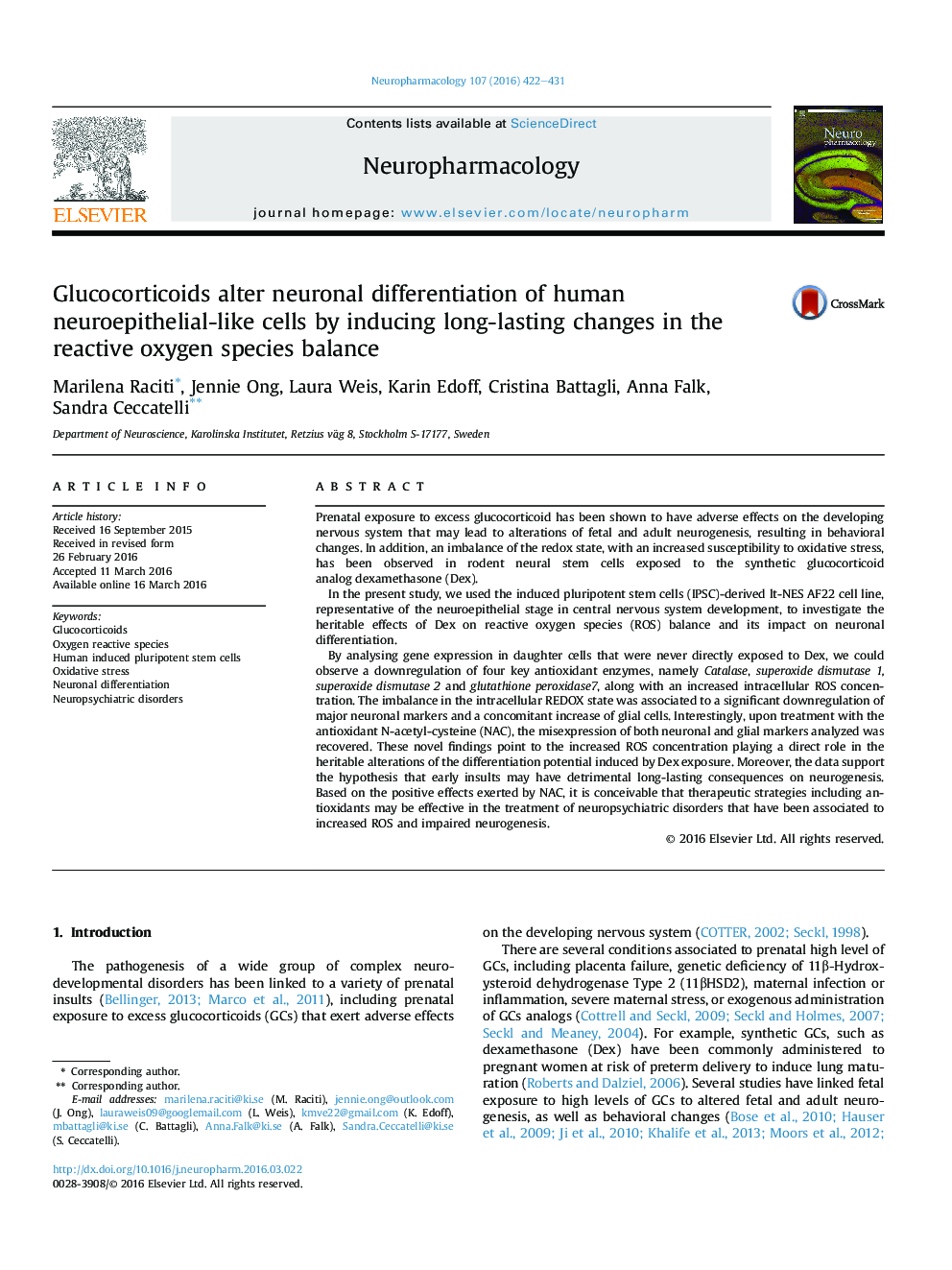| Article ID | Journal | Published Year | Pages | File Type |
|---|---|---|---|---|
| 5813284 | Neuropharmacology | 2016 | 10 Pages |
Abstract
By analysing gene expression in daughter cells that were never directly exposed to Dex, we could observe a downregulation of four key antioxidant enzymes, namely Catalase, superoxide dismutase 1, superoxide dismutase 2 and glutathione peroxidase7, along with an increased intracellular ROS concentration. The imbalance in the intracellular REDOX state was associated to a significant downregulation of major neuronal markers and a concomitant increase of glial cells. Interestingly, upon treatment with the antioxidant N-acetyl-cysteine (NAC), the misexpression of both neuronal and glial markers analyzed was recovered. These novel findings point to the increased ROS concentration playing a direct role in the heritable alterations of the differentiation potential induced by Dex exposure. Moreover, the data support the hypothesis that early insults may have detrimental long-lasting consequences on neurogenesis. Based on the positive effects exerted by NAC, it is conceivable that therapeutic strategies including antioxidants may be effective in the treatment of neuropsychiatric disorders that have been associated to increased ROS and impaired neurogenesis.
Keywords
Related Topics
Life Sciences
Neuroscience
Behavioral Neuroscience
Authors
Marilena Raciti, Jennie Ong, Laura Weis, Karin Edoff, Cristina Battagli, Anna Falk, Sandra Ceccatelli,
